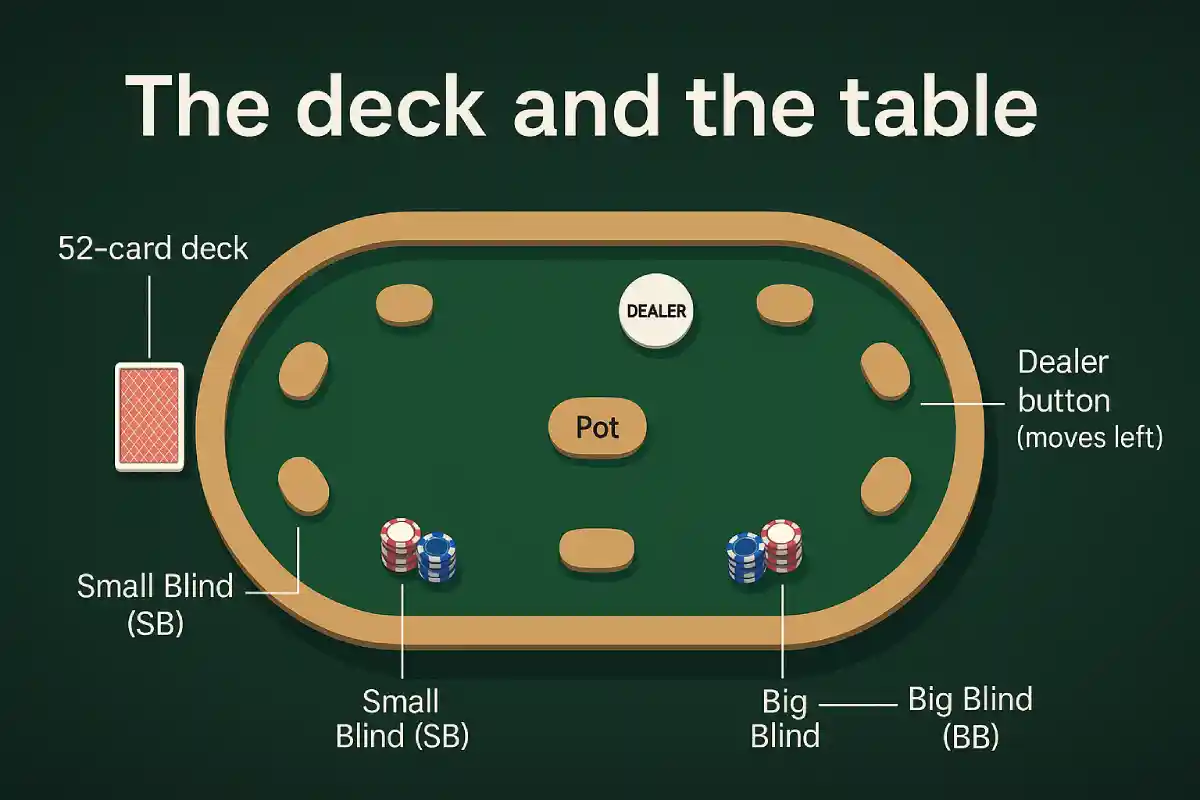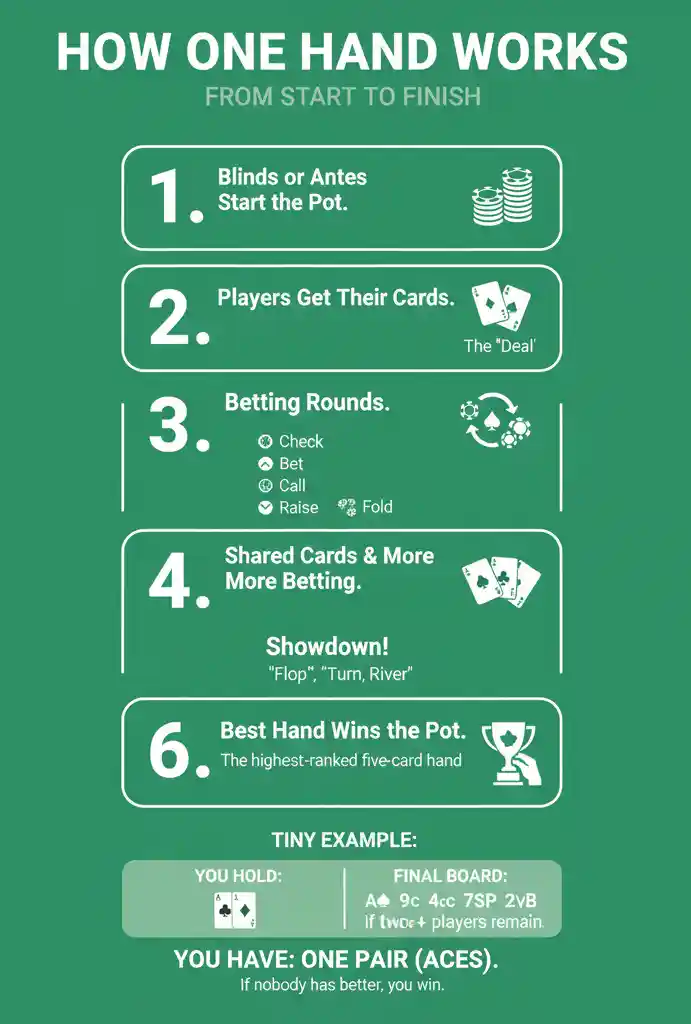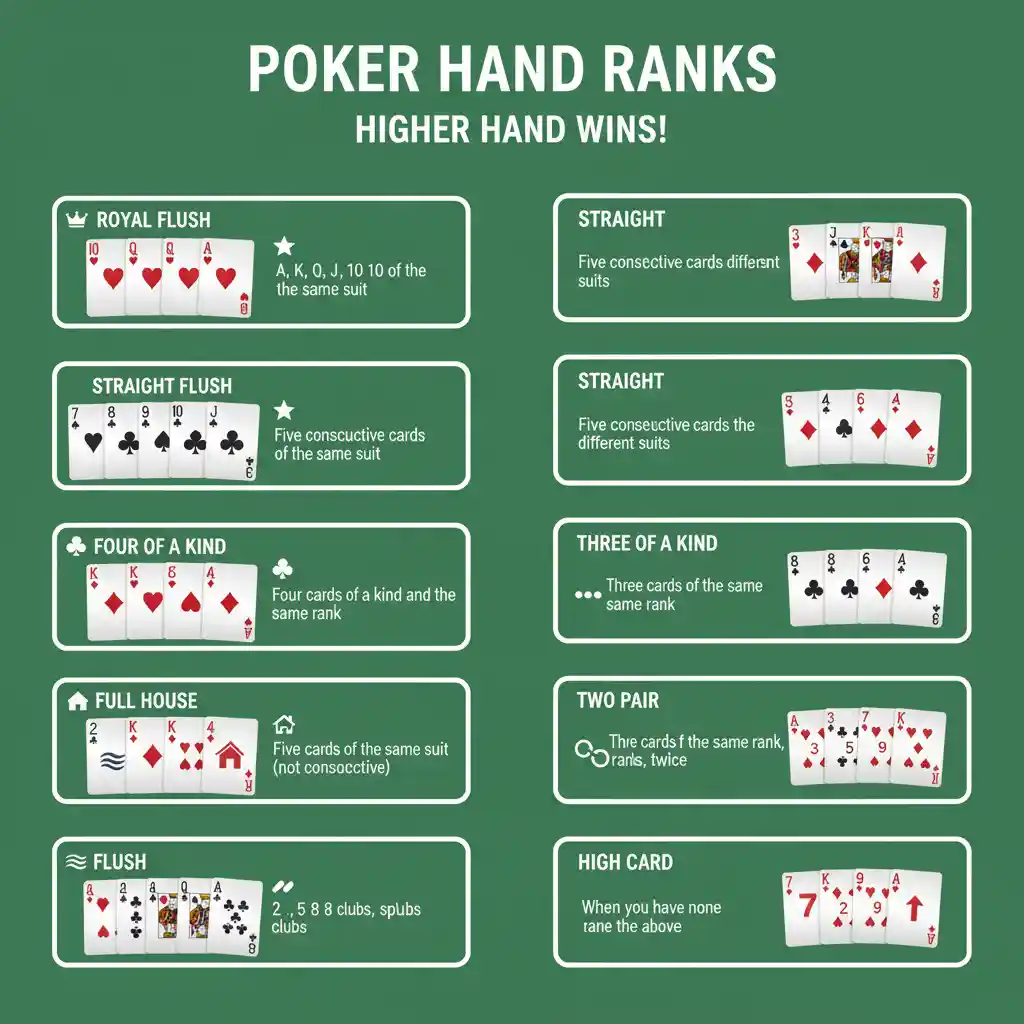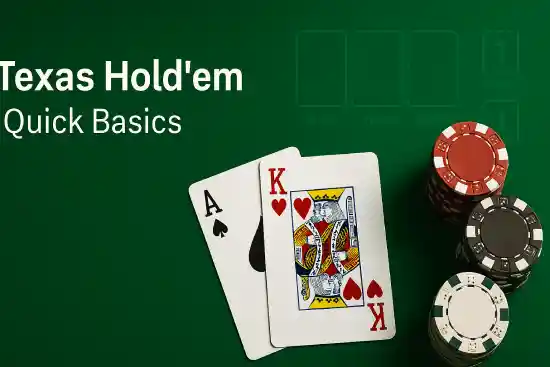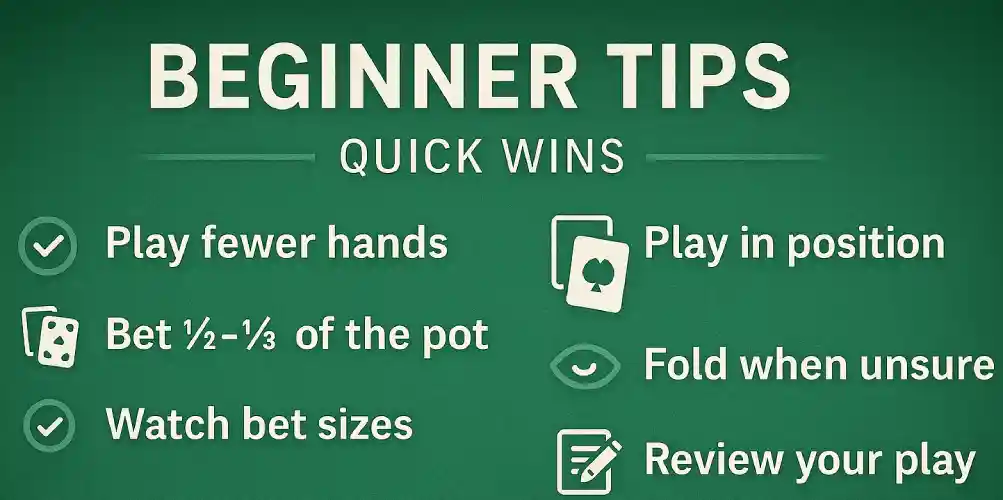The simple goal
Every hand has a pot in the middle. That is the money or chips you can win. Your goal is to take that pot. You do this by:
- Making the best five-card hand at the end (showdown).
- Getting everyone else to fold while the hand is still being played.
